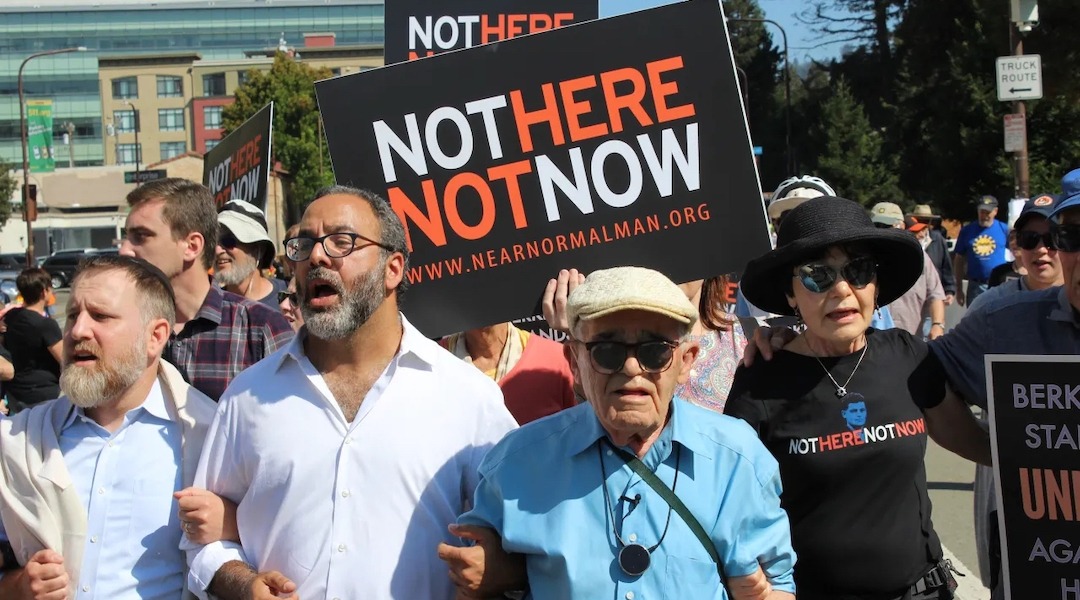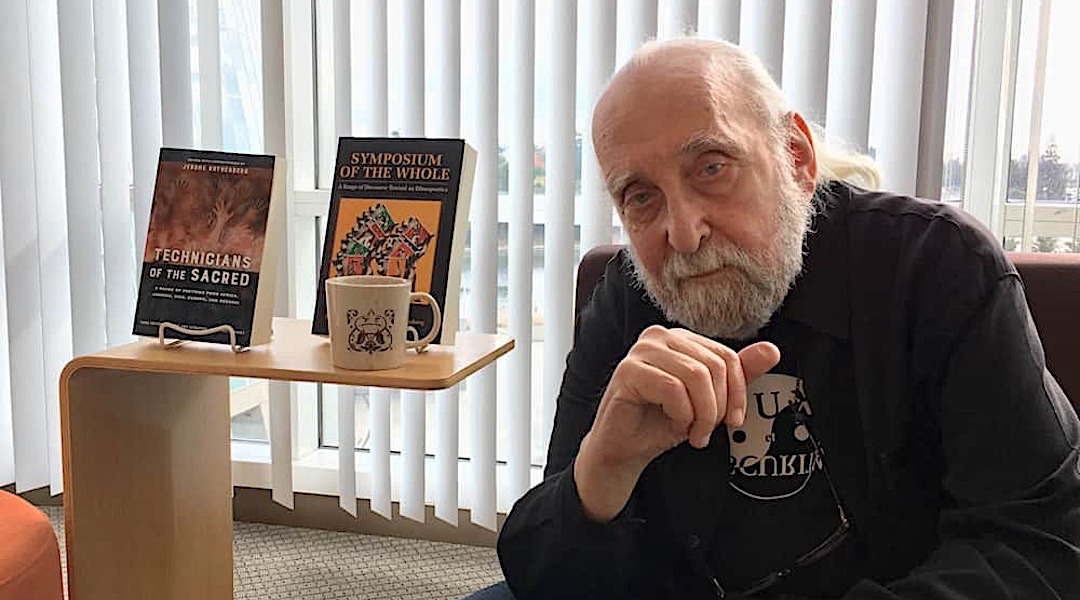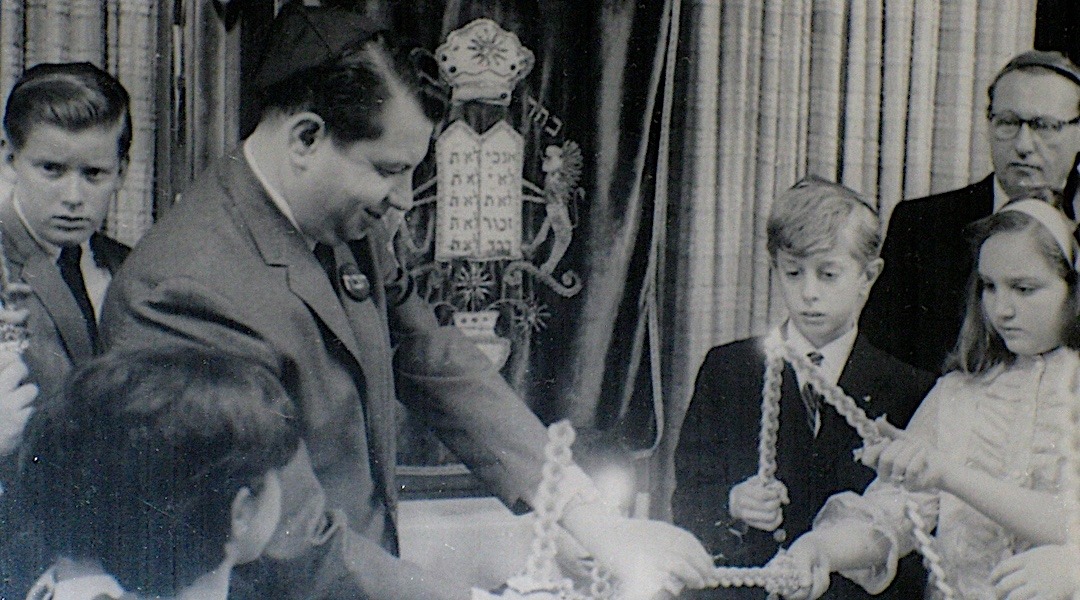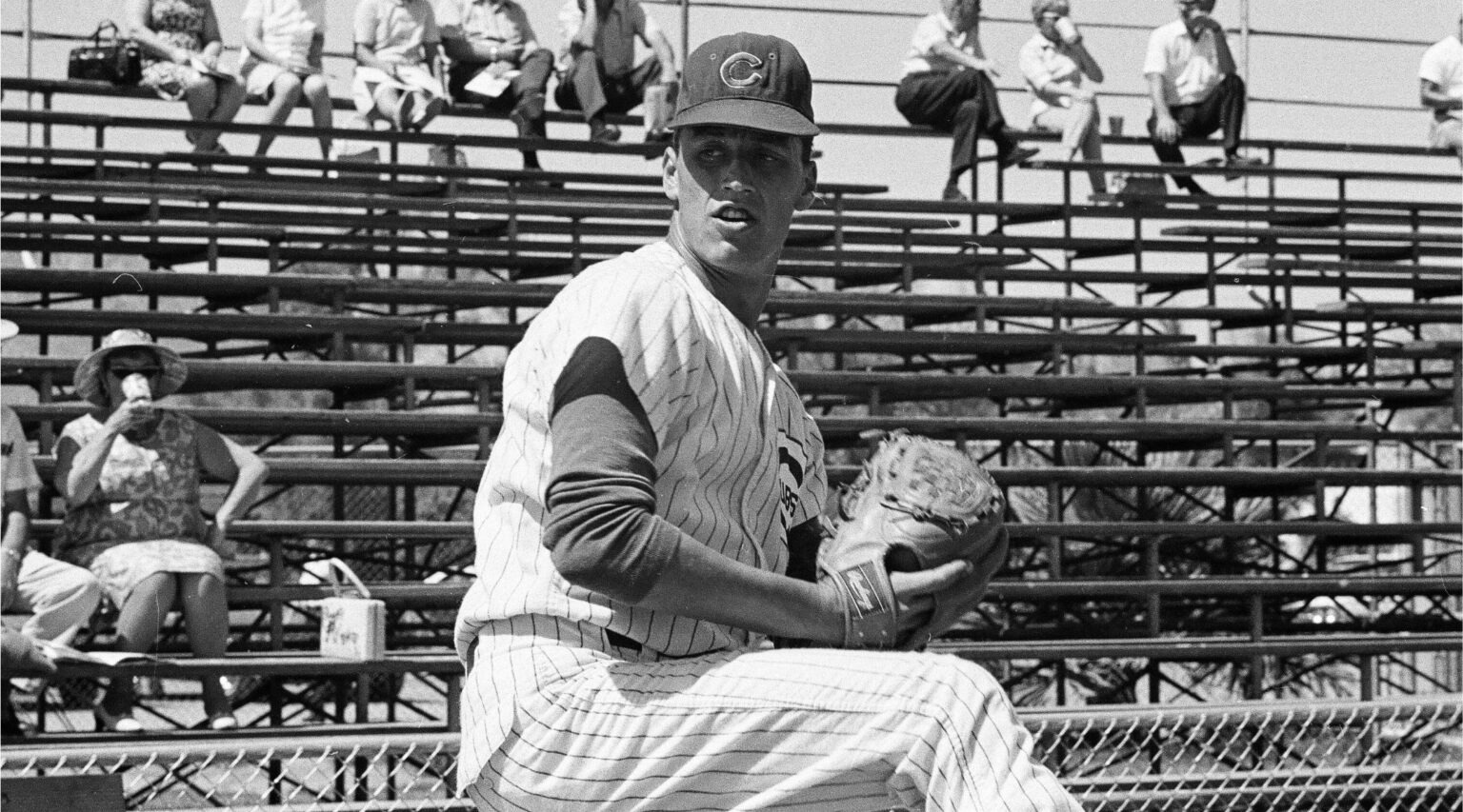(J. the Jewish News Weekly of Northern California via JTA) — Ben Stern, who survived two ghettos, nine concentration camps and two death marches only to confront Nazi sympathizers in his adopted America, died Feb. 28 at home in Berkeley, California. He was 102.
Stern famously worked to prevent neo-Nazis from marching in Skokie, Illinois, in 1977. Four decades later, he was still at it, working to oppose white supremacists in Berkeley when they threatened to come to his city in 2017.
He told his life story to countless groups, in the documentary film “Near Normal Man” and in his 2022 memoir, “Near Normal Man: Survival with Courage, Kindness and Hope,” co-authored with his daughter Charlene Stern.
“I’ve got to pay honor to my loved ones who were murdered by the Nazis,” he said in 2017. “I survived and I’m carrying out my promise, my obligation to them.”
“He was truly humble,” Charlene Stern recalled about her father. “He just wanted to help repair the world, to prevent more horror from happening.”
Stern, who often signed his name with 129592, the concentration camp number tattooed on his arm, was born Bendet Sztern on Sept. 21, 1921, in Mogielnica, Poland. He was the second-youngest of nine children.
After Germany invaded in 1939, he and his family were sent to a ghetto in their town and then to the Warsaw Ghetto, where his father died in 1942. That same year, the teenage Stern was sent to Majdanek. Most of his family were killed at Treblinka.
He later bypassed one of Josef Mengele’s notorious “selections” at Auschwitz by using a false number after being marked for death. Near the end of the war, he survived once again when an inept guard failed to ignite a bomb planted in a barrack packed with Jews.
Stern met his future wife, Chayah “Helen” Kielmanowicz, in the Bergen-Belsen displaced persons camp; they married after only six weeks. In 1946 they moved to Chicago, where Stern first worked as a carpenter and then founded a successful laundry business.
“While he was liberated by the American Army, he really ‘freed himself’ two years later when he let go of hatred,” Charlene said.
In 1977, the neo-Nazi National Socialist Party of America declared it would march down the streets of the Chicago suburb of Skokie, which had a large Jewish and Holocaust survivor population. Stern knew he couldn’t stay silent and joined a major Jewish pushback against the march that drew national attention and tied the march up in court for over a year.
“I was not nervous,” he told J. in 2010. “After what I went through, nothing could shake me.”
In a case that eventually led to a landmark free speech ruling in the U.S. Supreme Court, the neo-Nazis were allowed to march in 1978 but were far outnumbered by the Jewish counter-protesters who lined the route. The protest and trials inspired a 1981 TV movie, “Skokie,” starring Danny Kaye, and led to the establishment of the 5,000-square-foot Illinois Holocaust Museum & Education Center in Skokie in 2009.
The Sterns moved to Berkeley in 2008 to be close to their two daughters and grandchildren. They were active members of Congregation Netivot Shalom, where Stern essentially had his own designated seat in the second row of the sanctuary.
“When Ben walked in, the congregation felt such reverence and respect. It was similar to taking the Torah out of the ark,” said Rabbi Chai Levy .
In 2010, Stern was invited to accompany a group of high schoolers on a trip to Poland to visit Jewish memorial sites. His daughter decided to capture the trip on film, which became the half-hour documentary “Near Normal Man.” Its title came from Stern’s belief that after what he lived through, he could never be completely normal.
“I would have understood if he would have been an angry, depressed and withdrawn man. He was the opposite. I got a father who embraced life, loved people and lived life to the fullest. He lit up a room,” Charlene said.
“I couldn’t understand how he could come out of that experience with so much love and joy and a mission for justice in this world,” she said. “We would later hear from many people who were impacted by hearing him and said they would lean on Ben’s teachings to help guide their life.”
In 2017, Stern was featured in the Washington Post when he took in a special roommate: Lea Heitfeld, the granddaughter of Nazis who was studying for her master’s degree in Jewish studies at Berkeley’s Graduate Theological Union.
“This act of his opening his home, I don’t know how to describe it, how forgiving or how big your heart must be to do that, and what that teaches me to be in the presence of someone who has been through that and is able to have me there and to love me,” Heitfeld told the Post.
The same year, a group of white supremacists set their sights on Berkeley for a rally. The Jewish community countered with a rally of its own, and ultimately the group backed down. Stern spoke at the rally flanked by three rabbis.
“I must tell you, I’m not here alone,” Stern said that day. “I see my family and friends who didn’t make it.”
In 2022, when he was 101, his memoir was published and a book party was held at Netivot Shalom. Levy said the reverence the congregation felt toward him remained until the end.
“We all felt this sense of sacred obligation to know him and witness him and hear his stories and his history,” she said. “We knew it was a sacred experience to be with him and feel that weight.”
In addition to Charlene, he is survived by daughter Susan Stern of Fairfield, California; son Norman Stern of Georgia; seven grandchildren; and nine great-grandchildren.





